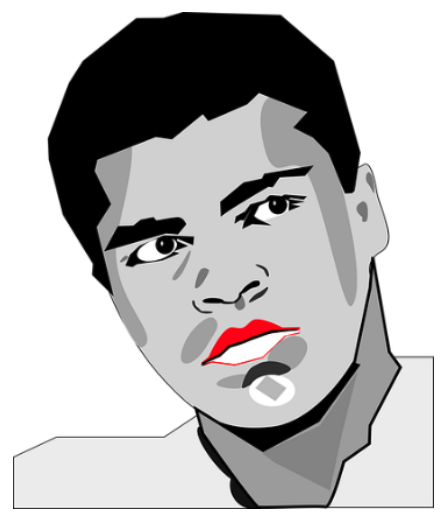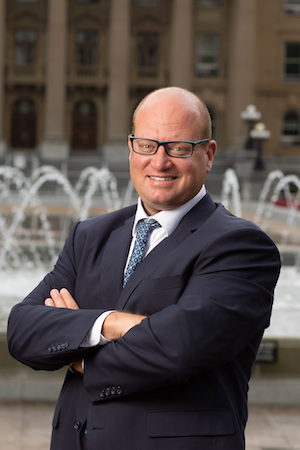The Best Criminal Lawyer in Edmonton
(a guide to choosing the best criminal lawyer)

“I’m not the greatest. I’m the double greatest. Not only do I knock ’em out, I pick the round. I’m the boldest, the prettiest, the most superior, most scientific, most skillfullest fighter in the ring today.”
Mohammed Ali
Mohammed Ali’s positive attitude and confidence was infectious. He also had the record to back up his big talk. In a system like boxing or baseball where ‘wins’ and ‘losses’ are easy to tally, a claim of being the greatest is verifiable.
What does it mean to be “the best” lawyer? By whose standards? Here are some factors to consider when choosing to hire the best lawyer.
Hard Work Beats Talent Every Time
I used to tell my son when he was growing up (he was a good hockey player and I am a proud father) “hard work beats talent every time”. This motto is a philosophy I hold true.
The Best Criminal Lawyers are the ones who work the hardest. It’s really not that complicated.
You have to work hard to achieve results. Some people and maybe even some lawyers think that justice is just the set point. That justice just happens. It doesn’t. If that were true, we wouldn’t need criminal lawyers. The Crown could just give the facts to the judge and the judge would make the right decision. You have to fight for justice at every step. In my experience – justice seldom “just happens”.
What is a Win?
Anyone looking to hire “the best” lawyer should have an understanding of what “the best” means. The law is not a finite game like boxing or baseball. Cases are complex, unpredictable and there is a real human aspect to it all. What is important to one client may not be important to another.
Measuring “a win” in criminal law is not so easy. If someone is charged with murder and you are able to get the charge reduced to manslaughter, is that a win? What if you are successful because the Prosecutor was incompetent or made a mistake? Is that a win? What if you lose at trial but win on appeal? What if you win at trial but lose on appeal?
Defining “a win” is context specific. It ‘s like playing the cards dealt. The question to ask is how well does the lawyer you hire play the cards he or she is dealt on a consistent basis?
A win is doing the best you can with what you have. Look for a lawyer who leaves no stone unturned, is up to date with the law, who doesn’t worry about what others think of him or her. Sometimes you need to be brave to make the hard arguments. A lawyer who is too cautious in litigation often loses by default.
The best criminal defence lawyers are creative, hard working and enthusiastic about their work. This usually translates into “wins”.
Experience isn’t everything
My principal, the person who trained me in my first year of being a lawyer-article student, told me when I first started practising that it takes about 10 years to feel comfortable in the court room. Generally, I would have to agree with his observation. This however does not mean that less experienced lawyers cannot get the job done.
In fact, I would take a young lawyer who knows the law, is eager to make a name for himself, who is passionate about his work, conscientious, caring and committed to the client any day over an experienced lawyer who thinks he knows it all because he has seen it all and views the work more as a chore than a calling.
Don’t get me wrong; there is no substitute for experience, but there is also no substitute for knowing the facts of your file inside and out, being up do date with the law, new legal trends and what goes on in the court house day in and day out.
It is often the younger lawyer who has an eye on these important things. Do not hire on experience alone. You need to gauge whether the lawyer you hire is engaged in the process and is passionate about his/her work.
Personality
Some clients need more reassurance than others. Not every lawyer is willing to engage in this type of relationship. Genuine empathy is generally a good quality for a lawyer to have but not mandatory. It’s important that both parties know each others’ exceptions at the outset.
Communication
Make sure the lawyer you hire is prompt in responding to emails and phone calls. This is key.
The Best Criminal Lawyers don’t need to say they are the best
The best criminal lawyers don’t need to say they are the best. Their results, reputation, referrals (repeat business) is proof enough. Take the time to read a lawyers reviews and case decisions.
Price
“The best lawyers charge the most.” No. No. No. This is completely wrong. Many good lawyers choose to charge prices that are lower than lawyers who are not of the same quality. I’ve seen very good lawyers, maybe some of the best, do exceptional work for a fraction of the price of lawyers who think they are the best. Do not be fooled by the price a lawyer charges.




